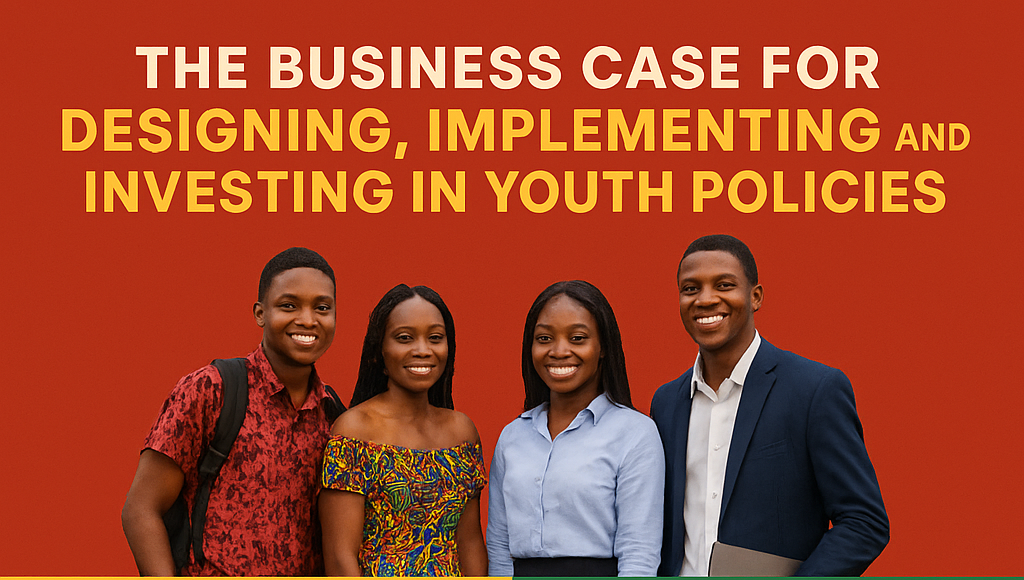Currently Empty: $0.00

Development Revisited: A Sociological and Managerial Analysis–Part 9
“Our enormously productive economy demands that we make consumption our way of life, that we convert the buying and use of goods into rituals, that we seek our spiritual satisfaction and our ego satisfaction in consumption. We need things consumed, burned up, worn out, replaced and discarded at an ever-increasing rate.”—Victor Lebow as quoted by William Rees.

Fig.1.The Value Pyramid of Management (VPM)
Prologue
It is an undeniable fact that economic development is a function of management. Without effective management, then, no economy can truly develop. In this fourth part (ninth in general) of examining economic development from the perspective of the Value Pyramid of Management (VPM) we turn attention to the impact of economic development on the customer.
Over the centuries, management has largely been shaped by the interests of the capital owner. Shareholder value maximization, therefore, has been the pursuit of management. This has often led to trampling other more important stakeholders in management.
The VPM which was propounded by this author seeks to correct the erroneous view that has been held over the years by management and that has significantly held back true development. It holds that, rather than the shareholder being at the top of the pyramid as the most critical and important stakeholder, his place is really at the bottom!
At the apex, we have nature, followed by society/humanity. Next is human resource which also precedes customer/supplier. Management is next and as mentioned earlier, the shareholder is at the bottom.
The Customer
All of us are customers since we all patronize the goods and services provided by another. And thanks to the evolution of money as legal tender for the payment of goods and services, the standard of living of various customers has greatly appreciated since that medium of exchange has made the production and distribution of a variety of goods and services for the customer possible.
However, customers are a very complex stakeholder in management. What satisfies one may not necessarily satisfy the other. And the parameters that affect this phenomenon are wide and varied; covering such variables as demography, climate, geographical location and the like.
Yet, since it is the customer that provides real demand for goods and services produced, his role becomes pivotal to the survival of any business and by extension any economy. Hence, businesses have devised clever ways of getting customers ‘need’ what is produced to stimulate economic growth and development. How has this stakeholder been affected by that device?
Exploitation
To put it mildly and in short, the customer has largely been a victim of exploitation by business. True, the basis of starting a business is to identify customer needs and design products and services to meet those needs. This would then give the impression that the customer’s well-being is the paramount concern of business (and that should be the case). But please take note of the objective; to satisfy customer needs, not wants. (With needs—we can’t live without them. But we can live without wants). Since the primary motive of business is profit, however, invariably, most businesses create these ‘needs’ which are actually wants and convince the customer to buy them, promising heaven on earth when indeed he could comfortably live without them.
This is in accord with the statement of Lebow quoted above which implies that for the economy to develop, people have to consume, no, not needs but wants! And the billion dollar advertising industry that has developed always seeks to advance just that. The consequence is the exploitation of the customer.
Forms of Exploitation
The exploitation of customers takes many forms. Usually, what is obvious to most of us is when customers are under-served or are short-changed. But there’s more:
Mindless Puppets
“Advertisers help us to answer needs we never knew we had.”(The Guardian) By means of psychology and craftiness, businesses seek to influence customers into desiring things they don’t really need. Then after a short while, they discard them and go in for ‘newer’ advertised ones. Many customers have thus become mindless puppets of businesses as their base instincts are appealed to.
This is even more evident in such industries as the electronic, automobile and fashion industries. As sociologist and economist Thorstein Veblen said regarding fashion, for example: “It is true of dress in even a higher degree than of most other items of consumption, that people will undergo a very considerable degree of privation in the comforts or the necessaries of life in order to afford what is considered a decent amount of wasteful consumption; so that it is by no means an uncommon occurrence, in an inclement climate, for people to go ill clad in order to appear well dressed.” (The Theory of the Leisure Class, 1899).
False Self-worth
As a corollary to the above, many have been led into a life of false self-worth or false consciousness. False self-worth because they value themselves based on such variables as where they live, the value of their estate, the kind of car they drive and the like—inanimate things that can’t add even just one second to one’s life-span! And they use such to determine friendships and their value.
The result is that many of us have lives that are hollow—hollow because we have no real spirituality, we hardly enjoy genuine and trusting relationships, and we don’t get to do work that we truly enjoy.
Talking of genuine relationships, in his book Earth in the Balance, former U.S. Vice President Al Gore asked the pertinent question: “If we have come to see the things we use as disposable, have we similarly transformed the way we think about our fellow human beings? . . . Have we, in the process, lost an appreciation for the uniqueness of each one?”
To compensate for that hollowness, many have resorted to promiscuity, excessive enjoyment, drug and alcohol abuse, sadism, suicide and the like—a life of anomie! Seeking to find pleasure in those things, they rather sink deeper into an abyss of hopelessness!
The above description is clearly the kind of life that is found in so-called developed countries. And yet, ‘developing’ economies view them as a model to emulate. No wonder such traits are gradually engulfing these countries.
Lower Quality of Health
In a quest to acquire most or all that the commercial world promotes, many customers have to over-work themselves in order to make more money. And this has taken a toll on the health of many. How is that so?
Eating habits have deteriorated; some of us can’t even make the time to eat, let alone cook healthful meals. To satisfy that segment of the population, fast-food joints and restaurants have sprung up to provide us with junk foods and drinks that endanger our health. But we call it “a better living standard”!
Further, due to lack of adequate sleep which has now become a status symbol, many or most of us are stressed-out and have developed attendant ailments that are life-threatening.
To ‘ameliorate’ these health challenges, ‘development’ comes up with more ‘effective’ medicines for us to take to improve our health. But is that really the case? How can an economy point to a high life expectancy for its citizenry due to ‘improved’ medical care as an indication of ‘development’ when people are actually living on medicines? Is a life on medicines that results from work-stress and pollution—effects of economic ‘development’—really quality health and quality life? Or it’s another charade to deceive the customer?
Poor Family Life
Customers have been made to think that a successful family life depends on the supermarket. Hence, once again, through clever advertising, we are made to think that filling our homes with all those electronic gadgets and nice furniture and changing them often would make the home happy. And indulging spouses and children in fashion, jewelry and expensive vacations would bring family happiness.

ranted, those are nice things to have and enjoy. But do they really enrich family life? If they did, why the high rates of divorce and broken homes in ‘developed’ countries? And as economies ‘develop’ these occurrences become more commonplace so much so they become ‘normal’!
No wonder the German newspaper Süddeutsche Zeitung argued: “Twice a year we buy new clothes, every four years a new car, and every ten years a new living room suite; every year we look for a new vacation spot; we change homes, occupations, businesses—so why not our marriage mate?”
Isn’t this kind of reasoning a result of customer exploitation? Is that true development?
Poor Education
Economic development comes with poor education. This may sound absurd; but it is true. In customers’ pursuit of money to afford all the nice stuff for themselves and their family, they tend to have little or no time to socialize their children properly. Instead what they put in the minds of their children is “work hard at school to earn a good living in future”. The children in turn grow up making the earning of big money and acquisition of fine property their motive for pursuing education. The real value of education—that of adding value to oneself and making a difference in the life of others—takes less meaning and is lost. Hence, most of them study for high grades and not the acquisition and application of knowledge. This has contributed in a large way to dysfunctional education.
Greed
Above all is this bane on humanity—greed. This is at the root of all the woes of mankind. Yet it is the very tendency that economic development promotes in businesses; and then these businesses in turn promote it in customers.
Making customers think that an inexorable consumption is what leads to quality life, many have greedily gone after things they don’t even need. The results are garbage, pollution, social vices and other negative phenomena overwhelming the world.
No doubt, the customer has become a toy in the hands of commercial interests for exploitation. And all this is in the name of the maximization of shareholder interests and economic development. Is this what true development is? Is this what the world is pursuing? Where are we headed?
The author Jules Nartey-Tokoli is Founder and Group CEO at Groupe Soleil Vision, comprising Soleil Consults, LLC, NubianBiz dot Com and Soleil Publications. He has lived and worked in both Ghana and the United States, having extensive experience in Strategy, Management, Entrepreneurship, Premium Audit Advisory and Web consulting. He has also published several articles on Strategy and Management among others.
Discover more from NubianBiz.Com, Africa Business Directory & Portal for intra-Africa Trade, Jobs, networking and education
Subscribe to get the latest posts sent to your email.







